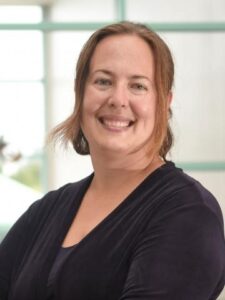http://s.uconn.edu/meseminar3/19/21
Abstract: The National Science Foundation (NSF) supports work in all fields of science and engineering, including biomedical engineering. That said, biomedical engineering researchers can face challenges in finding the right ‘home’ and scope for their work at NSF. This presentation will provide a broad overview of the mission of NSF and how it relates to the biomedical engineering community, including emerging initiatives and responses to the current disruption of the research enterprise. Descriptions of select programs at the National Science Foundation that fund work relevant to the biomedical engineering community will be covered. Best practices in proposal preparation and practical tips to optimize interaction with your program director will also be discussed. Bring your questions along!
Biographical Sketch: Laurel Kuxhaus, PhD, is the program director of Biomechanics & Mechanobiology within the Division of Civil, Mechanical and Manufacturing Innovation at the National Science Foundation. Concurrently, she is an Associate Professor of Mechanical & Aeronautical Engineering at Clarkson University, where she directs the Orthopaedic Biomechanics Laboratory. Her laboratory work spans the field of orthopaedic biomechanics including injury biomechanics of both hard and soft tissues and design of both orthopaedic implants and assistive technology devices. She holds B.S. (Engineering Mechanics) and B.A. (Music) degrees from Michigan State University, an M.S. (Mechanical Engineering) from Cornell University, and a Ph.D. (Bioengineering) from the University of Pittsburgh. In 2018, she was elected to Fellow status of the American Society of Mechanical Engineers (ASME) and has previously served as a member of the Executive Committee of the Bioengineering Division of ASME. More recently (2018-19), she spent a year on Capitol Hill working in science and technology policy as an ASME Congressional Fellow.
